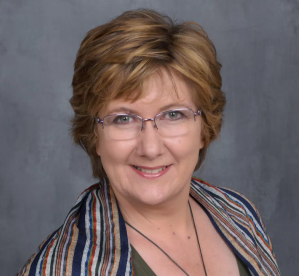
Step into a captivating pre-afterlife realm where seven women from Biblical history converge for an unprecedented reality game show titled "Bad Girls: Whatchu Gonna Do, For Real?" This unique theatrical production offers Eve, Jezebel, Mrs. Potiphar, Delilah, Mrs. Lot, Rahab, Sapphira, and the Samaritan woman at the well, an extraordinary opportunity to finally share their untold stories, redeem their reputations, and secure their eternal destiny.
However, this is far from a typical reality program; hosted by the cunning and controlling D.A., a host who thrives on scandal and high ratings. The narrative takes a dramatic turn when the women uncover D.A.'s true, exploitative intentions - to leverage their personal sagas for his own fame. United by a newfound sisterhood, they bravely seize control of the show, ultimately unveiling a profound truth that has always been within their grasp: the transformative power of Jesus Christ.
As the compelling drama unfolds, some characters embark on a journey of redemption, prompting the audience to engage in deep self-reflection about their own life choices. This theatrical experience - which sold out over the two days in mid-May 2025 - masterfully blends humor with introspection, demonstrating that even the most infamous figures can discover hope.
At the heart of this groundbreaking production is ChemiChemi Players, the professional theatre company operating under the Creating Understanding International (CUI) Centre for Performing Arts. Based in Nairobi, Kenya, the ministry is dedicated to cultivating a Christ-centered community of drama professionals. Their commitment to excellence in the performing arts is evident in their mission of “utilizing potent, biblically-inspired storytelling to address contemporary issues within an African context” which aligns to ChemiChemi Players mission of "Transforming lives for Christ, one play at a time!"
Leading this passionate community of theatre artists and creatives is Dr. Julisa Rowe, whose journey into drama ministry spans nearly four decades, beginning in the United States and extending across the globe, with the last two decades firmly rooted in Kenya alongside her husband.
In an interview with Christian Daily International, Dr. Rowe said before founding ChemiChemi Players, she worked independently touring the U.S., and collaborated with churches and schools in Kenya, including Nairobi Baptist Church, Mamlaka Hill Chapel, and Daystar University, “training individuals in various aspects of drama ministry, from acting and directing to writing and technical theatre.”
From the pulpit to the public
“We have been involved in church ministry for many years, we've had a lot of wonderful opportunities to teach about theology and doctrine and Bible knowledge through drama in a way that engages the audience. But to some extent there's a limit to what you can do at churches,” explained Dr. Rowe, noting that despite an "inbuilt audience" and "more support," the sheer volume of church activities can constrain artistic endeavors.
For artists feeling a distinct calling to ministry through the arts, a point arrives where they desire to do "more" and "more frequently." This yearning naturally led to the concept of establishing an independent theater company, a model prevalent globally.
The fundamental motivation for ChemiChemi Players stemmed from a critical observation: many talented Christian artists felt they lacked a sufficient platform within the church, compelling them to seek opportunities in the secular world. Unfortunately, once in the secular arena, "they get sucked into the demands of what the world wants them to do and because they need the money or they want the platform or the recognition, they end up going along with that (secular practices)," Dr. Rowe revealed.
Her deep-seated desire was to cultivate a distinct environment - a "safe space" - where Christian artists could have a platform to boldly express their faith and engage with the community. This space aims to provide wholesome entertainment that allows artists to maintain their ethical boundaries, a crucial consideration particularly for young women in an industry historically plagued by exploitation and abuse.

The core objective became clear, Dr. Rowe stated: "how can we provide a place where people can exercise their craft, can grow, can feel safe and encouraged, and then particularly how can we do plays that are speaking to the general community but from a perspective of the biblical world view?"
The idea for "Bad Girls of the Bible" materialized during the 2020 COVID-19 shutdown, providing Dr. Rowe with ample time for reflection. She had long possessed an American "Bad Girls of the Bible" study book in her library, finding its concept fascinating due to its modern narratives. However, her constant question for any story is, "What would this story look like in Kenya?"
Collaborating with colleagues and friends over Zoom, they meticulously researched and adapted the biblical stories to resonate with Kenyan society, blending biblical background with local relevance. While the research was fruitful, the initial attempt to write a script for a February 2021 launch of ChemiChemi Players with "Bad Girls" proved challenging.
This hurdle led to the company's inaugural production, "Spread Your Garment Over Me," which debuted as an immediate hit shortly after the pandemic restrictions eased. This play was an adaptation of Dr. Rowe's earlier solo touring monologues about women in the Bible, repurposed to feature multiple talented women from her network, framed within a cohesive narrative.
Despite social distancing and masks, 50 people attended each night, and the response was overwhelmingly positive. Reviewers praised how the play prompted audiences to consult their Bibles, sparking engagement among non-Christians with Scripture. Dr. Rowe highlighted the desired outcome: "Wow, yes! We are engaging non-Christians in Scripture...This is exactly what we want. We want Christians to own our stories in such a way that people are engaged in talking about it saying 'what does this have to do with us?'"
The success of "Spread Your Garment Over Me" led to a men's version, "Kings and Leaders," in 2021, which was also well-received. Subsequent productions included a play about Pilate, exploring the theme of "what is truth in this age of relativism," and more family-friendly one-woman shows to manage budget constraints.
Beyond biblical narratives, ChemiChemi Players has consistently tackled pressing community issues, particularly mental health. Dr. Rowe noted, "I believe it is a kingdom value to stand in that space of healing whether it be depression and suicide or you know aging issues."
This commitment led to plays like "Every Brilliant Thing," which addressed suicide and depression, and "In Other Words," a deeply personal play about dementia inspired by Dr. Rowe's mother's nine-year journey with the illness in Kenya.

"In Other Words" was a critical success, winning "best two-hander production" at the Kenya Theater Awards, but more significantly, it raised tremendous awareness. The company collaborated with the Alzheimer's and Dementia of Kenya organization, hosted doctors for post-show discussions, and even saw the Asian community re-stage and sponsor the play.
Dr. Rowe joyfully recounted, "Here are Muslims and Hindus sponsoring a Christian company to do a play about dementia at Jalaram Auditorium where you walk past the image of Ganesh." This experience powerfully demonstrated their ability to "do things that are of importance to the community, gaining trust, gaining relationships."
Since its inception, ChemiChemi Players has garnered significant recognition, receiving nominations every year at the Kenya Theater Awards for categories like "theater company of the year" and "best actor or actress". The highly anticipated "Bad Girls of the Bible" eventually came to fruition, proving to be a triumph. Artists involved found it "healing," especially young women who had experienced challenges in the industry. The play resonated as a narrative of "hope and redemption and second chances."
Critical acclaim
The feedback was remarkable, with industry reviewer Sanaa Post theatre describing a "literal come to Jesus moment," a comment Dr. Rowe found it incredibly gratifying. Sinema Focus reviews lauded the production's high quality, particularly its "set design... costume and makeup and hair" which created the "reality TV show" aesthetic. One review praised its "gutsy and honest" approach, offering a "nuanced feminine gaze to biblical storytelling" filled with "rollicking humor and deep insight into time with themes of identity and belonging, the nature of sin, the grace of a merciful God".
"Bad Girls of the Bible" stood in stark contrast to what another reviewer described as "religious skits... melodramatic stories, heavy headed moral messages, and lackluster set designs" often found in Christian theater. Instead, it was a "welcome surprise" that not only brought audiences "closer to God" but also demonstrated that "theatrical form itself can be enlivened through spiritual storytelling."
This success was reflected in audience numbers, which soared from 300 for previous plays to 1,200 for "Bad Girls of the Bible," thanks in part to a strong social media marketing strategy targeting church audiences and various community groups.
Despite the artistic and spiritual triumphs, sustaining a theater company solely on ticket sales presents significant challenges. Dr. Rowe acknowledged that individual financial contributions, even small ones, alleviate some pressure through consistently seeking partnerships, sponsors, and donors to support productions as reliance on ticket sales only is not sustainable.

The company heavily relies on volunteers due to the difficulty of paying full-time staff, emphasizing that their work is fundamentally a "ministry" rather than a commercial enterprise with large budgets.
The initial run of "Bad Girls of the Bible" was limited to one weekend because of the sheer effort required to fill seats and the substantial budget of almost Ksh3 million ($23,000) for the stage show. While ChemiChemi Players would love to re-stage the play or tour it to churches, the financial logistics remain a hurdle, with a touring budget estimated at Ksh600,000 ($4,600) due to the large cast and equipment needs.
Churches, Dr. Rowe notes, are "not used to paying for expenses," making financial feasibility a key discussion point. "We would be happy to do it again if we can get the sponsorship," she affirmed.
Looking ahead, ChemiChemi Players plans to re-stage a musical titled "Romeo and Juliet," a Kenyan reimagining of Shakespeare's classic blended with elements of West Side Story, though this has been postponed to the following year due to the demanding nature and higher costs of musicals.
Immediate plans include starting acting classes around September and dedicating efforts to developing new scripts, particularly in response to audience demand for "Bad Boys of the Bible" or a "Bad Girls season two".





